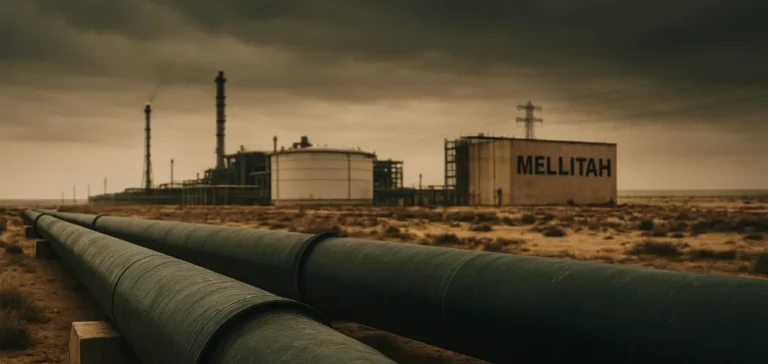Authorities from Nigeria and Libya have announced they have begun technical talks to revive a pipeline project aimed at linking Nigerian gas reserves to the European market via Libyan territory. The announcement follows a bilateral meeting during which both countries agreed to mobilise their teams to launch feasibility studies.
A shorter route than regional alternatives
The proposed route for this new energy corridor is estimated at 3,300 kilometres, making it one of the shortest among trans-African projects. In comparison, the Nigeria-Algeria Trans-Saharan Gas Pipeline stretches nearly 4,000 kilometres, while the Nigeria-Morocco project spans 5,560 kilometres. The new route would allow direct connection to the Greenstream pipeline, already operational between Libya and Italy.
This geographical configuration offers immediate access to the Mediterranean gas network without requiring new liquefaction terminals or maritime infrastructure. It also presents an opportunity to shorten implementation timelines compared to larger projects requiring multiple phases of regional interconnection.
Diversification targets for Abuja
For the Nigerian government, the initiative is part of a broader strategy to diversify its energy export channels. The country has intensified efforts to increase natural gas exports, notably through the relaunch of the Nigeria-Morocco project, discussions on extending the West African Gas Pipeline to Côte d’Ivoire, and the announcement of a $60bn gas expansion plan.
This new transit option via Libya would complement these initiatives, while strengthening Nigeria’s position in the European gas market, considered strategic amid growing demand and shifting import flows.
Strategic interest for Tripoli
For Libya, the project would allow further use of existing infrastructure, notably the Greenstream pipeline, in operation since 2004, linking the Libyan city of Mellitah to the Gela terminal in Italy. Libya is seeking to increase its oil and gas production by rehabilitating existing fields and securing exports as it gradually restores its energy capacities.
Initial discussions between the two countries date back three years, when a proposal was made by Mohamed Aoun, then Libyan Minister of Petroleum. At this stage, no financing has been announced and the discussions remain focused on the exchange of technical data and the formalisation of a memorandum of understanding.






















